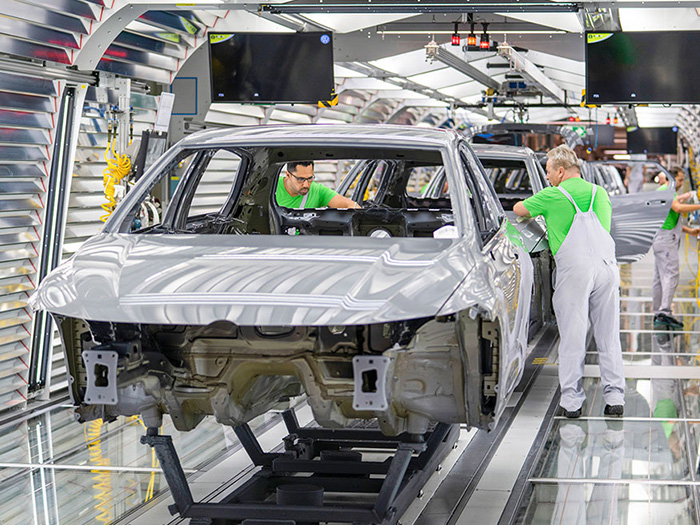Reducing emissions and saving resources: the Carbon Fund projects
Volkswagen Group’s Carbon Fund was launched just ten months ago, but has already supported many successful projects in 2019. The emissions saved amount to more than 170,000 tonnes of CO₂ and the initiative will continue also in 2020.
Volkswagen Group’s Carbon Fund was set up at the beginning of 2019 with the aim of devising and implementing internal projects that reduce CO2 emissions. Thanks to the 25 million euro available for financing the projects and the combined work across all brands, its environmental impact is already obvious.
How the Carbon Fund works
All Group brands can apply for these financial resources. The prerequisite is they must submit projects that reduce CO₂ emissions, improve energy efficiency or generate other savings. The aim is also to accelerate innovation and strengthen new business models, promote cross-divisional cooperation and support viable, high-impact projects. Another key aspect in ensuring that a project receives support is that it should be transferable to various Group locations.
In its first year alone, the Carbon Fund jury approved 94 projects. More than 100 new projects have already been identified for 2020, with selections continuing every month. The fund is an integral part of Volkswagen Group’s decarbonisation strategy.
Below are some examples of the projects made possible in 2019 by the Carbon Fund.
“LED lighting”
At nine Group production sites, a total of 33 measures were implemented to convert the lighting within certain areas of the plant to energy-saving LEDs. CO₂ reduction: 116,000 tonnes per year.
“Refrigeration Provision”
In Kassel, existing refrigeration units have been, or are in the process of being replaced by so-called separation circuit systems. So far, more than 150 refrigeration units have been replaced. The new separation circuits are used for machine and spindle cooling and considerably reduce energy consumption. The heat input into the cooling water network is also reduced by 23 percent and maintenance and service intervals are longer and less costly. In the future, all new plants will be equipped with separation circuit systems from the outset. In 2019, 13 systems were retrofitted. Total CO2 reduction: 1,350 tonnes annually.
“Other Infrastructure”
In this project, new energy-efficiency pumps with a so-called pump curve optimization were installed, the roofs of buildings were renovated, and a new cabinet cooling system was installed. The project commenced on July 1 and was completed on December 31, 2019. CO₂ reduction: 2,000 tones per year.
“Paint shop & dryer”

Volkswagen installed a load-dependent volume flow control system at its Hanover site. After an initial testing phase, the technology will be extended to other locations in the next few years, saving 1,200 tonnes of CO₂ emissions annually while reducing costs.
In addition, further projects were implemented in this project which saved a total of 1,800 tonnes of CO₂ by the end of the year. In total, the project reduces emissions by 3,000 tonnes a year.
“Washing processes”
Industrial washing machines were optimized at several Volkswagen Group locations. A total of around 30 systems were technically retrofitted with so-called frequency converters.
In addition, operating parameters such as pressure and volume flow, temperatures and standby times were optimally adjusted. The project started on July 1 and was completed by the end of the year. CO₂ reduction: 2,900 tonnes annually.
“Further production processes”
Modern temperature technology was installed on three die casting machines. In the die casting process, it is important to heat or cool the right areas of the casting mold at the right time - for this purpose, up to 40 heating and cooling circuits run in the molds.
With the aid of flow and temperature sensors, the technology can distribute the heat flow so intelligently that enormous energy savings are achieved through internal heat recovery. The project was implemented in the second half of 2019 and was completed by the end of the year. CO₂ reduction: 2,500 tonnes annually.
Source: Volkswagen AG
